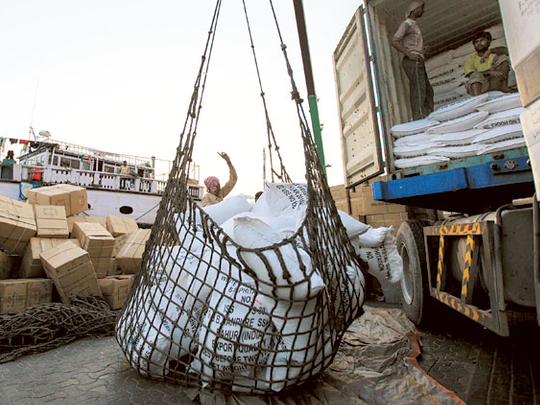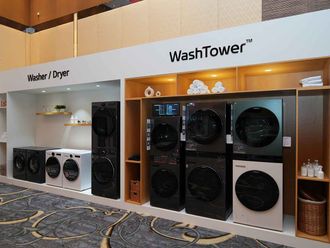
Dubai: Efforts to curb soaring food prices must be managed carefully so they do not deter investment or cause shortage of basic goods, industry professionals and economists say.
The UAE Ministry of Economy and major retailers including Carrefour, the cooperative societies, LuLu Hypermarket and Spinneys, which together account for 75 per cent of the local retail market — have frozen the price of 1,600 food items until the end of the year. These goods include rice, flour, sugar and water.
The Ministry has said setting fair prices will help control food inflation.
But Saleh Lootah, Chairman of Food and Beverage Group, is concerned that stringent enforcement of these regulations will result in fewer products in the market and less investment as price caps are not a healthy measure in a free trade market such as the UAE. Last year UAE retailers collectively took a Dh250 million hit on their profits, after agreeing to the government’s price caps on 1,000 products. Lootah said: “The new regulations will further cut into the profit of businesses which are already at risk.”
He added: “To preserve the quality of food products, providing a steady supply and the best service, there should be no restrictions on business.” He suggested that food prices can be contained by boosting agricultural production, reducing the cost of doing business and building a strategic food reserve, to be released as necessary.
Food prices started heading up a few years ago in more than a third of the countries in the region, closely mirroring the rise in global commodity prices. “Since 85 per cent of the food in our country is imported and we are a free trade market, there would be no way to cap food prices or even to subsides some commodities,” said Lootah. Besides international price hikes, increased local demand and costs of business had contributed to higher food bills in the UAE.
UAE-based economist Dr Abdul Hamid Radwan said if a country is linked to the world market in a free-trade environment, domestic prices move with international prices. This not only makes price caps ineffective but will hurt the market and traders as well.
He added that the enforcement of the agreements with retailers would be very complex, since it requires regular monitoring and the enforcement of fines. Radwan said: “The government is building a partnership with the private sector, but this is a short-term strategy as retailers and traders cannot bear losses or cuts in profit.”
Dr Hashim Al Nuaimi, director of the Consumer Protection Department at the Ministry of Economy, said that although the prices caps are a Ministry initiative, participation was optional and those retailers participating did not mind bearing the cost. He explained: “The Ministry did not force any retailer or business to adopt its initiative to cap the prices of some food products. It was their choice.”
This year, over 360 retailers have signed up to the agreement and their prices will be monitored to during the year to guarantee their commitment.
Al Nuaimi said: “We are trying to create a competitive atmosphere among outlets and encourage them to retain prices at the same level, even if there are fluctuations in raw material costs locally and globally. We are committed to strengthening the framework for communication and dialogue with all retail outlets in the UAE.”
He conceded that it was hard to convince retailers to be part of the initiative. “Some retailers have agreed to lower prices to the wholesale level, while others will cut prices by up to 50 per cent,” he said.
Yousuf Ali MA, Managing Director of LuLu Hypermarkets Group, said: “When we signed the deal with the Ministry on freezing the prices of around 40 essential commodities, we were aware that this is going to be huge cost for us. But, since it is part of our corporate social responsibility strategy, we agreed to this policy. This is our way of giving back to the society.”
He added: “We know that these are not long-term solutions, especially for such countries in the region which depend heavily on imports for majority of the consumer goods.”
Over the last few years, LuLu has established its own sourcing centres in many countries around the world to import commodities directly from the manufacturers and suppliers, while avoiding the cost of mediators. “This helps us to cut down costs and keep selling prices lower.”












